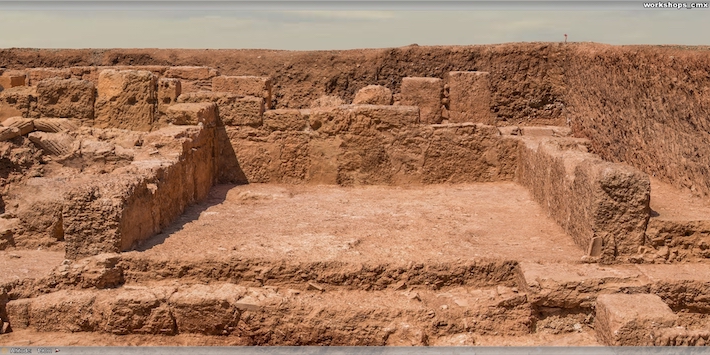 WATERLOO, ONTARIO—According to a Live Science report, traces of a 1,600-year-old wine shop have been uncovered in southern Greece at the site of the ancient city of Sikyon by a team led by Scott Gallimore of Wilfrid Laurier University and Martin Wells of Austin College. The structure is thought to have been abandoned after an earthquake or building collapse, due to the broken vessels made of bronze, glass, and ceramic; 60 bronze coins; and marble tabletops found scattered on the floor. The shop had been located in a neighborhood of workshops containing kilns and presses for grapes or olives. “Unfortunately, we don’t have any direct evidence of the types of wine that may have been sold,” Gallimore said. “We have some evidence of grape pips (Vitis Vinifera), but we aren’t able to say anything more specific than that right now.” Most of the coins found on the floor, Gallimore added, date to the reign of the Roman emperor Constantius II, who ruled from A.D. 337 to 361. The latest coin was minted sometime between 355 and 361. The coins were all probably held in a ceramic vessel or bag that fell to the floor when the shop was destroyed, he concluded. To read about small home vineyards in ancient Pompeii, go to "The Archaeology of Gardens: Food and Wine Gardens."
WATERLOO, ONTARIO—According to a Live Science report, traces of a 1,600-year-old wine shop have been uncovered in southern Greece at the site of the ancient city of Sikyon by a team led by Scott Gallimore of Wilfrid Laurier University and Martin Wells of Austin College. The structure is thought to have been abandoned after an earthquake or building collapse, due to the broken vessels made of bronze, glass, and ceramic; 60 bronze coins; and marble tabletops found scattered on the floor. The shop had been located in a neighborhood of workshops containing kilns and presses for grapes or olives. “Unfortunately, we don’t have any direct evidence of the types of wine that may have been sold,” Gallimore said. “We have some evidence of grape pips (Vitis Vinifera), but we aren’t able to say anything more specific than that right now.” Most of the coins found on the floor, Gallimore added, date to the reign of the Roman emperor Constantius II, who ruled from A.D. 337 to 361. The latest coin was minted sometime between 355 and 361. The coins were all probably held in a ceramic vessel or bag that fell to the floor when the shop was destroyed, he concluded. To read about small home vineyards in ancient Pompeii, go to "The Archaeology of Gardens: Food and Wine Gardens."
Roman-Era Wine Shop Excavated in Southern Greece
